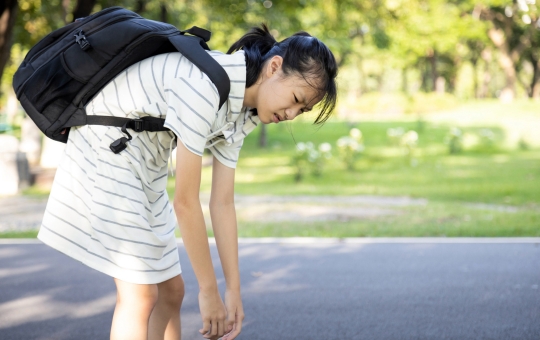Is Your Child’s Backpack Too Heavy: Understanding the Risks and Solutions
How to know if your child's backpack is too heavy?
The easiest way of knowing if a back pack is too heavy is to ask your child if they are able to carry their backpacks easily and weighing the back pack. The other most obvious sign that their body will tell you that the backpack may be too heavy is that they will lean forward when they wear their back packs. This is to compensate for the weight. Lastly there is pain. If they are having shoulder, neck or back pain and if they have asymmetric posture.

How can heavy backpack affect a growing child's back?
Carrying a heavy back pack causes some compression of the cartilage between the bones in the back and can hurt the muscles around the back trying to stabilize and carry the load. Luckily, no studies have shown lifelong back problems caused by heavy backpacks. Heavy back packs to not cause scoliosis. However, they can make scoliosis worsen and cause more tightness and pain. It also encourages bad posture.
What can be the consequences of a heavy backpack?
Some of the short term consequences are back pain, neck pain, shoulder pain along with abnormal posture. These are relatively short lived and respond well to easy changes like decreasing the weight of the back pack.
Luckily there are relatively few long-term effects. The research done so far suggests that carrying heavy back packs does not cause permanent back problems in children. However, if a child already has scoliosis it can make it worse, which can lead to chronic back pain.
How much weight should a child carry?
American Academy of Pediatrics recommends no more than 15% of the child’s body weight. So if a child weighs 100lbs the back pack should not be more than 15 lbs. If a child weight 50 lbs. then it should not weigh more than 7.5 lbs.
What relief/remedies are there for backpain?
Over the counter medications like Tylenol and ibuprofen in addition to heat packs and warm showers are the easiest and fastest way to alleviate pain. Stretching exercises also helps. If the pain is not responding to these remedies then you should go and see your doctor to make sure the pain is not caused by something else. They may recommend other medications, x-rays or seeing a physical therapist. That is a conversation to have with your child’s doctor.
